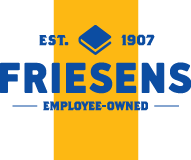November 13, 2018
Is your yearbook committee equipped to succeed?
Over the years of working with “best-in-class” and “not-so-best-in-class” yearbook committees, I’ve seen high functioning groups and completely dysfunctional ones. I’ve seen yearbook advisors pull their hair out just to move their yearbook along while others sit on the sidelines, mentor their students and enjoy the energy and creativity unfold before their eyes.
I’ve often pondered why some advisors make it look so easy while others spend countless hours, not to mention evenings and weekends only to end up with mediocre results. I’ve studied behaviors, patterns and best practices and I would like to share those with you.
Here are the 3 questions to ask yourself to determine if your yearbook team is geared to succeed.
1. Is there a Yearbook culture in my school?

We’ve noticed that our top schools have, over the years, developed a proud yearbook culture. Being part of the yearbook committee has been elevated to a privilege. Students are often recruited in grades 9 and 10 and groomed by senior students on the committee. Those recruits are either re-invited to participate the following year or if they don’t make the cut, are asked by their peers to leave. Senior students feel validated by coaching and mentoring younger students and the mistakes made, lessons learned and success stories are passed on from year to year to the new yearbook leadership team. At the other end of the spectrum, we have schools that, every September, beg and plead for students to join the committee. Students often join reluctantly and with very little engagement and passion. Those schools have new members every year, very little continuity and don’t move forward from year to year. They often repeat the same mistakes year after year and the advisors are forever picking up the loose ends and working much harder than they should.
2. Are you leading your orchestra or playing every instrument?

Great orchestra conductors have mastered the art of getting all the musicians to play different notes, keeping them on cue and ultimately creating amazing music. Are you a conductor or are you often stuck sitting in all the different chairs and playing different instruments to make sure your orchestra makes it to the end of the piece? We have found that high performing yearbook advisors have built systems around them. They have clearly established the different roles they need to succeed and have assigned students in roles that match their individual skills.
On the topic of role, here are the roles that our best advisors told us were essential to their success.
i. Editor/Assistant Editor
- Responsible for the overall theme and direction of the yearbook. These are typically experienced yearbook committee members that have demonstrated a leadership role and strong organization skills.
ii. Photographer-in-Chief and other Photographers
- Responsible for gathering, organizing and editing photos. As well as coordinating which photographer will cover what event.
iii. Design Team
- Responsible for the overall feel and design of the book.
iv. Content Editor
- Responsible for ensuring that all activities are covered during the school year.
v. Copywriters/Journalists
- Responsible for either writing or gathering good articles to incorporate into the yearbook. Their responsibilities may also include engaging the participation of freelance writers within the school population.
vi. Social Media Leader
- Responsible for engaging the student population. Giving the students a portal to post articles and photos they may have taken as well as to promote on social media the upcoming yearbook.
vii. Marketing team
- Responsible for promoting yearbook sales as well as getting advertisers/sponsors to participate.
3. Are your team members rowing at their own pace or is your team rowing in harmony to the beat of a drum.

Imagine a row boat being propelled down the river by individual rowers who are rowing at their own speed and setting their own course, while the boat next to them is a highly coordinated team rowing in unison, and lead by a coach beating a drum and setting the pace, encouraging his rowers at the same time. Which will run smoother? Which will get to the finish line with the least amount of friction and frustration? Which individuals will feel a greater sense of accomplishment in the end?
Our top advisors have shared with us that their role is mostly to create an environment that their team will flourish in. Their role is to ensure that all their students work in harmony and most importantly as a single unit to achieve the end goal on time and with the least amount of friction. Their role is to set the pace and beat the drum while encouraging each team member to surpass themselves. Those advisors are the ones that share how privileged they are to lead their group and can’t wait to see how next year’s book will be better than this year’s.
One of the most interesting observations and what probably impressed us the most was something that our top advisors noticed. They said that looking back, they had built lasting bonds with those students feeling they had shaped and influenced them through this process while equipping them with important life skills.
Regardless of the size of your yearbook or your school, you have the potential to empower your students to be “best-in-class.” So I ask again, is your yearbook committee equipped to succeed?
Caroline Foster
Friesens Yearbook Consultant







